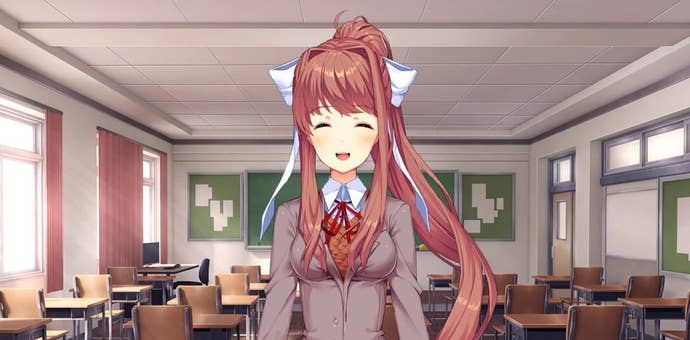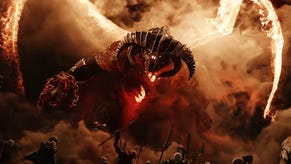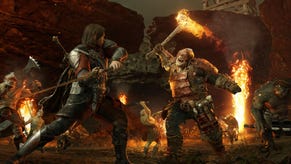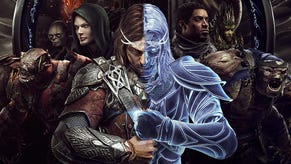Down With Grinding
STARTING SCREEN | One of gaming's oldest design tropes is also its laziest.
This article first appeared on USgamer, a partner publication of VG247. Some content, such as this article, has been migrated to VG247 for posterity after USgamer's closure - but it has not been edited or further vetted by the VG247 team.
My commute used to be dedicated to grinding. Riding the train from Kanagawa to Tokyo, I would listen to 1UP Yours and run through the Elite 4 over and over again, or bike back and forth hatching eggs. I did this for hours at a time. Days even.
I told myself that the grind was only a means to an end; but really, it was the end. I put dozens, if not hundreds, of hours into raising my monsters, and only a fraction of that into actual battling. In recent years, I've suffered extreme burnout, which has resulted in my hours spent playing Pokemon dropping precipitously. I just don't have the time or energy to mindlessly grind anymore.
At its core, grinding is filler. It dangles the promise of a meaningful reward—better skills, new weapons, special items—in exchange for drudgery. It's a trick designed to keep players engaged without having to produce new and interesting content.
Its roots are in the days of 8-bit RPGs, when developers had limited resources and memory. In forcing players to grind through monsters to get to a high enough level to defeat a boss, designers were able to arficially extend playtime. Moreover, they were spared from having to design unique and interesting encounters, as victory became more of a matter of brute force.
The worst grinding is just a series of repetitive actions in which you repeatedly kill an easy enemy or complete a simple challenge. It's boring, it's time-consuming, but it feels like it's "worth it" because you're working toward some greater goal. In its iconic World of WarCraft episode, South Park had probably the best representation of grinding ever.
Was it worth it? Well, they did eventually win, I guess.
As games have evolved, grinding has become less about making up for memory shortages and more about getting players to spend money. MMORPGs were practically founded on grinding for endgame loot, which is a function of the desire to keep people subscribed. In Madden 18, solo challenges having grown into a multi-headed monster in which you have to grind through dozens—if not hundreds—of rote missions to get non-auctionable rewards. It's a trick designed to bore you into giving up and springing for microtransactions. And it works.
A new and particularly pernicious example can be found in Shadow of War's endgame. In order to get the best ending in Shadow of War, you need to recruit lots of powerful orcs, which necessitates a time-consuming slog that can be mitigated (surprise, surprise) by purchasing loot boxes.
Whatever form it ultimately takes, grinding can't help killing a game's pacing and momentum, forcing you to mark time until you get to the good stuff (or relent and spend money). Some games, like Destiny 2, use it as a substitute for anything resembling a real endgame, leaning instead on daily busywork that is meant to fill the hours between content drops.
What amazes me is that people seem to eat it up. Promise them some epic loot or more levels, and they'll happily sit and grind away. But that doesn't make it a good practice. There has to be a better way to get people to engage with a game over a long period of time.
These days I tend to favor games with smart alternatives to pure grinding. I appreciate Persona 5's Mementos, for example, which let you level up by grinding toward discrete objectives in randomly generated dungeons. The Witcher 3, for its part, has a seemingly endless number of interesting sidequests, which encourages you to level up by exploring the world.*
* Many open world RPGs lean on fetch quests, which are every bit as bad as grinding. Both are pure filler.
Even monetized online platforms can get it right on occasion. I really like FIFA 18's Squad Battles, where you can climb an internal leaderboard by regularly challenging CPU-controlled squads. This mode works because it rewards you more points for beating harder teams, and because the rewards it offers are really great even at the middle levels. It's still a grind, but it doesn't feel nearly as rote as the solo challenges in Madden.
Farming XP, gear, or coins will of course never go away, especially in long-term online "platforms." There will always be people willing to spend literally days grinding for some special rewards. But there are ways to avoid forcing players into one giant loop in which they play the same content over and over again. And those developers who explore those alternatives will be rewarded with players who are less likely to become burned out over the long haul. That's how you create a stable long-term fanbase.
Sadly, I fear that the the recent trend toward loot boxes will only encourage developers to lean harder on grinding as a substitute for substantive and interesting content, as we're seeing in Shadow of War. And that will only lead to less interesting games overall.
But whether as a crutch for early designers or a way to pump up monetization, grinding will always be the least interesting form of game design—a mindless bit of padding that trades boredom for illusory rewards. It's indicative of either poor balance, a lack of imagination, or worse, a determination to gear the design toward forcing players to shell out more money. It is the definition of compromise.
Down with grinding. We have more interesting things to do with our time, and our money.
Nadia's Note Block Beat Box: Vamo' Alla Flamenco from Final Fantasy IX
I'm playing through Final Fantasy IX for the first time, which means I get to discover its soundtrack alongside its story and characters. Vamo' Alla Flamenco is the first song that really stuck out to me. It initially plays during your mock sword battle during the Performance of I Want to Be Your Canary, and then it accompanies you as you blow all your money and free time playing the Chocobo Hot or Cold minigame.
I'm maybe a third into the game, and I've already noticed how Final Fantasy IX experiments with different sound styles. Vamo' Alla Flamenco, as its name suggest, opts for a Spanish flamenco sound. Its energetic combination of strings and castanets is enough to make me try again and again when Chocobo Hot and Cold isn't going my way. Kweh? Kweeeh!

Caty’s AltGame Corner
Doki Doki Literature Club in name, in essence, in theory, does not sound like a total mindfuck. Yet, it is. It's right there in the description on Steam, "The Literature Club is full of cute girls! Will you write the way into their heart? This game is not suitable for children or those who are easily disturbed." That's alongside a succinct "psychological horror" tag right next to "visual novel" and "cute."
Doki Doki Literature Club is not the simple slice of life visual novel that it seems, and it takes quite awhile until it ventures into weirder, subversive territory. Like all shocking games, it's best to go in blind. Doki Doki Literature Club is available on PC and Mac for free.
Matt’s Monday Mornings
I didn't have internet this weekend so I was forced to put aside Destiny 2 and instead chip away at some of my video game backlog. And while Caty is the one usually talking about indie games, I'd like to highlight one I played over the weekend that really surprised me, the FMV indie game Late Shift.
Developed by studio CtrlMovie, Late Shift is a fully HD FMV game that really modernizes the dated format. The production values really shine in Late Shift, but it's the storytelling that really shines. The premise follows our hero Matt as he begins his night shift at a parking garage. Depending on your choices, you'll soon find yourself wrapped up in a crime caper that spans across the London nightlife.
It's a surprisingly engrossing game that makes a case for FMV games in the 21st century if done properly. Luckily the team behind Late Shift made sure that every part of the game, from the acting, directing, and cinematography keeps up with the ambitious crime story.
This Week's News and Notes
- We seem to have hit a small lull between big releases. South Park and GT Sport will please certain segments of the population, but it appears that we're all marking time as we wait for Assassin's Creed Origins and Super Mario Odyssey. Or, you know, Etrian Odyssey 5.
- Speaking of South Park, you can read Nadia's review here. I'll confess: I lost interest in South Parks years ago, and I have no interest to engage with it again. What I'd really like to play is a Bojack Horseman RPG. I wonder if someone can make that happen?
- This tweet blew my mind:
Yes, of course, it makes total sense: Shadow of War should have been a Warhammer game all along. Now I know why it all feels so off-putting to me. I mean, the grinding doesn't help either, but I kind of hate how it co-opts the world of Tolkien. If Warner Bros. wants tacky dark fantasy, they should at least have some fun with it. - I really hope this Jack Bros. platformer gets localized. Regardless, it's free on PC, so you definitely should play it.
- In case you missed it: Nadia is in the midst of a journey through Final Fantasy IX in her ongoing Final Fantasy IX Report series, which is based on the audio version found in Axe of the Blood God. Join her, won't you?
- As always, we'll be streaming on Twitch on Tuesday and Thursday as well as podcasting on Wednesday and Friday. Join us! And of course, have a good week.










